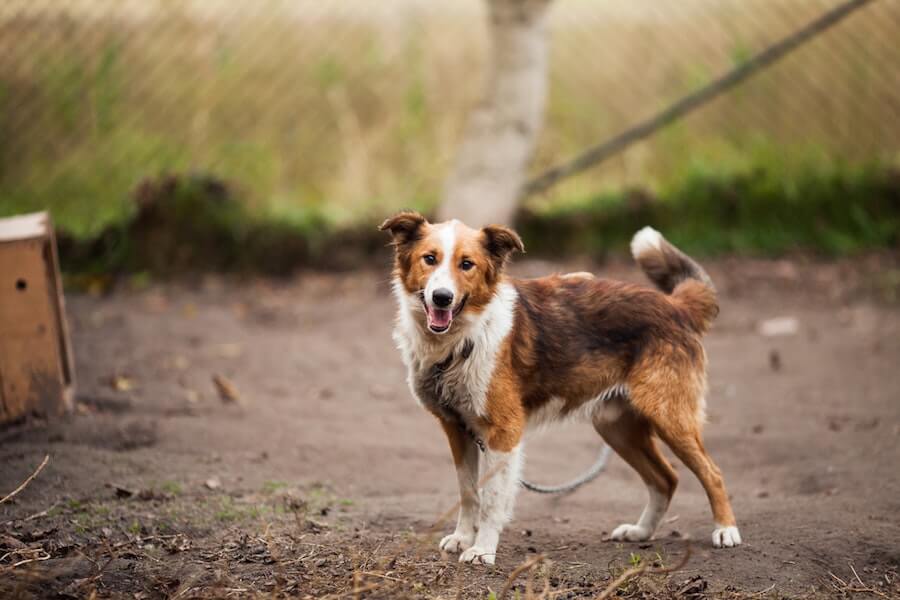An animal shelter is a refuge for homeless dogs, cats, rabbits, rats and most other pets you can think of. For some animals, this might just be a temporary separation from their owners, but for others, it means waiting at the shelter until a new home is found.
For those looking to work with a range of different animals, the job as an animal shelter worker can be hugely rewarding. Your job will be to keep these animals clean and comfortable during their time at the shelter, and also work as a promoter for these animals, helping them find loving new homes.
The roles of a pet shelter worker
Your primary task as a pet shelter worker is to keep the animals in your care happy, clean and well fed. This may involve cleaning cages, scrubbing cat boxes, and walking dogs for exercise. Delivering meals makes you a popular member of the pet shelter team, and as you feed each animal you’ll be responsible for offering lots of love and affection. This may be a crucial part of your everyday duties, as this will get them ready for their new home. Other duties may include:
- Grooming and bathing
- Cleaning and making up surgical kits in the veterinary clinic
- Customer service and administration
- Grounds and maintenance
- Overseeing work experience and student course placements
- Pickups, deliveries and handling donations
As new pets arrive to your shelter, you may be asked to take a photo of the animal and create a record that lists important details such as age, condition, temperament and distinctive markings. If you know this pet will be requiring a new home, you may need to tap into your creativity to come up with a good description that will appeal to people looking to rescue an unwanted pet.
When these people do come, you’ll likely be required to interview these new pet parents to make sure they have the resources to care for the animal. Depending on the shelter you work at, this may mean visiting their home to ensure the animal will be in a safe and loving environment.
Should an animal get sick while in your care, you will need to contact a veterinarian to provide medical care. You may be asked to provide medicated baths or give prescription pills, but trained veterinary technicians will perform more advanced procedures, including euthanasia.
The availability of jobs
While the role as a pet shelter worker may be gratifying, it is often in the form of a voluntary position. Many pet shelters are non-for-profit, meaning they rely on volunteers for their everyday operations. Without this support, many pet shelters wouldn’t be in operation and the number of pets in care would be far fewer.
Volunteering is a great way to meet lots of new people and become an integral part of a community committed to providing homeless pets a second chance at a happy life. Roles range from working in administration to helping the nursing team, photographing shelter residents to animal care tasks. It’s an incredible way to be involved in animal welfare, and to impact the lives of the thousands of animals that find themselves in need each year.
Required availability of pet shelter volunteers varies from shelter to shelter. Most request a 6 month commitment for both casual and rostered volunteers, however, talk to your local shelter for more details. Many shelters have increased demand for volunteers during holiday periods.
Most animal care and service workers require no previous qualifications, with on-the-job training common practice.
What qualities do you need to be a pet shelter worker?
Important qualities for animal care and service workers include:
Compassion
You must be compassionate when dealing with animals and their owners. Not only do you need to treat animals with kindness, but the people bringing the animals in too. For many, dropping a pet to an animal shelter can be an excruciatingly painful decision.
Customer service skills
A big part of your role as a pet shelter worker includes talking to people that may be interested in volunteering, looking for a new pet, or looking for a lost pet. When matching a pet to new owners, it’s essential you get a good feel for the person/s and that all pet owners, new or old, leave the shelter satisfied.
Detail orientated
Because pet shelter workers are often responsible for keeping an animal on a strict diet, maintaining records, and monitoring changes in animal behaviour, they should be detail orientated.
Patience
Not all animals will take to you straight away and some animals may fail to follow commands. Patience is the key here, especially when responsible for offering training to an unruly pet.
Physical stamina
Your role as a pet shelter worker requires lots of kneeling down, crawling, bending, lifting heavy supplies, scrubbing and handling large animals. You will need a good level of physical stamina to handle this
Problem-solving skills
Pet shelter workers should be able to assess a problem when they see one and respond with appropriate teaching methods or the appropriate behaviour/next step.
Reliability
Animals require care in a scheduled and timely manner, and it’s important you can meet their needs. Many pets benefit from familiarity and for owners leaving their pets in temporary care, they need to feel trust in your ability to offer a safe environment.
Flexibility
Animals require care around the clock and some pet shelter facilities need to be staffed 24 hours a day. As a pet shelter worker, you may be required to work irregular hours, including evenings, weekends and holidays.
Liz Walden
Latest posts by Liz Walden (see all)
- Assessing your insurance risks - October 29, 2021
- 4 questions to ask about professional indemnity insurance - October 29, 2021
- Public Liability vs. Professional Indemnity: What’s the difference? - April 26, 2021










Leave A Comment